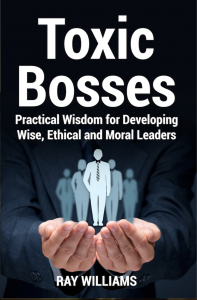By Ray Williams
March 17, 2021

When’s the last time you read a good novel? Cover to cover? And held the book in your hands? Many people today believe this is just a recreational activity to relax or it’s a waste of time. Far too many would prefer to read either non-fiction read articles online. Yet research shows that reading fiction can improve cognitive functioning, language skills, EQ and well-being.
Online Non-attention and Distraction
Even if someone clicks on an article, the likelihood of them taking it all in is very slim. The internet has changed many of our habits. But one thing that hasn’t changed in nearly 20 years is the way we consume content online. Most of us still skim and rarely read a full post. Millions of blog posts are published every day. A small percentage are read. And among those readers, 55% will read the blog post for 15 seconds or less. (If you’re still reading, thanks for sticking with this one!)

Fiction vs. Non-Fiction Publishing
In the publishing industry, adult non-fiction revenues are soaring above fiction revenues and have been widening the gap for the past five years. Adult non-fiction revenue totaled $6.18 billion across the publishing industry in 2017, while adult fiction revenues reached $4.3 billion, according to Penguin Random House, using data from Association of American Publishers (AAP), the U.S. Bureau of Economic Analysis, and Bookscan.
And more and more people are reading both non-fiction and fiction online or with e-readers, which, according to research studies, changes the way their brains function.
Virginia Clinton at the University of North Dakota, compiled results from 33 high-quality studies that tested students’ comprehension after they were randomly assigned to read on a screen or on paper and found that students of all ages, from elementary school to college, tend to absorb more when they’re reading on paper than on screens, particularly when it comes to non-fiction material.
Several other studies suggest that reading on paper instead of an electronic screen is better for memory retention and focus. The Guardian reported on an experiment from Norway where people were given a short story to read either on a Kindle or in a paperback book; when they were quizzed later, those who read the paperback were more likely to remember plot points in the right order.
Researchers have noticed changes in reading behavior as readers adopt new habits while interfacing with digital devices. For example, findings by Ziming Liu at the University of San Jose, California, claimed that digital screen readers engaged in greater use of shortcuts such as browsing for keywords and selectivity. Moreover, they were more likely to read a document only once and expend less time with in-depth reading. Such habits raise concern about the implications for academic learning.
Of the American and Japanese subjects sampled by Baron, 92 percent reported they found it easiest to concentrate when reading in hard copy (98 percent in Germany). Of the American students, 26 percent said they were likely to multitask while reading in print, compared with 85 percent reading on-screen.
The Good Novel in Your Hands
Reading fiction not only is a great recreational activity, it also slows cognitive decline.One study showed that older readers have a 32 % lower rate of mental decline compared to their peers who didn’t read. In addition to slower memory decline, those who read more have been found to show fewer characteristics of Alzheimer’s disease, according to a 2001 study published in the journal Proceedings of the National Academy of Sciences.
According to neuroscientist Daniel Levitin, focused reading uses about 42 calories per hour, whereas absorbing new information (e.g., scanning Twitter or the news headlines) burns around 65 calories per hour.
Research has found that reading novels improves our brain functions on a variety of levels, including the ability to put yourself in another person’s shoes and flex your imagination. It also boosts our innovative thinking skills. Take it from Elon Musk, arguably one of the most innovative minds of our time. He’s said that growing up, he spent more than 10 hours a day pouring through science fiction novels. In today’s rapidly changing world, innovation is necessary for any business to stay competitive.
The Game of Thrones
Researchers found that the more immersed people tend to get into “becoming” a fictional character, the more they use the same part of the brain to think about the character as they do to think about themselves.
“When they think about a favorite fictional character, it appears similar in one part of the brain as when they are thinking about themselves,” said Timothy Broom, lead author of the study at The Ohio State University. The study was published online recently in the journal Social Cognitive and Affective Neuroscience.
The study involved scanning the brains of 19 self-described fans of the HBO series “Game of Thrones” while they thought about themselves, nine of their friends and nine characters from the series. (The characters were Bronn, Catelyn Stark, Cersei Lannister, Davos Seaworth, Jaime Lannister, Jon Snow, Petyr Baelish, Sandor Clegane and Ygritte.)
Participants reported which “Game of Thrones” character they felt closest to and liked the most.
“Game of Thrones” was a fantasy drama series lasting eight seasons and concerning political and military conflicts between ruling families on two fictional continents. It was ideal for this study, Broom said, because it attracted a devoted fan base and the large cast presented a variety of characters that people could become attached to.
One of the key findings involved participants in the study who scored highest on what is called “trait identification.” In a questionnaire they completed as part of the study, these participants agreed most strongly with statements like “I really get involved in the feelings of the characters in a novel.”
“People who are high in trait identification not only get absorbed into a story, they also are really absorbed into a particular character,” Broom said. “They report matching the thoughts of the character, they are thinking what the character is thinking, they are feeling what the character is feeling. They are inhabiting the role of that character.”
For the study, the participants’ brains were scanned in an fMRI machine while they evaluated themselves, friends and “Game of Thrones” characters. An fMRI indirectly measures activity in various parts of the brain through small changes in blood flow.
The researchers were particularly interested in what was happening in a part of the brain called the ventral medial prefrontal cortex (vMPFC), which shows increased activity when people think about themselves and, to a lesser extent, when thinking about close friends.
The process was simple. While in the fMRI, participants were shown a series of names — sometimes themselves, sometimes one of their nine friends, and other times one of the nine characters from “Game of Thrones.” Each name appeared above a trait, like lonely, sad, trustworthy or smart.
Participants simply said “yes” or “no” to whether the trait described the person while the researchers simultaneously measured activity in the vMPFC portion of their brains.
As expected, the vMPFC was most active when people were evaluating themselves, less active when they evaluated friends, and least active when they evaluated “Game of Thrones” characters.
But for those who were high in trait identification, the vMPFC was more active when they thought about the fictional characters than it was for participants who identified less with the characters. That brain area was especially active when they evaluated the character they felt closest to and liked the most.
The findings help explain how fiction can have such a big impact on some people, said Dylan Wanger, co-author of the study and assistant professor of psychology at Ohio State.
“For some people, fiction is a chance to take on new identities, to see worlds though others’ eyes and return from those experiences changed,” Wagner said.
“What previous studies have found is that when people experience stories as if they were one of the characters, a connection is made with that character, and the character becomes entwined with the self. In our study, we see evidence of that in their brains.”
A new study published in the journal Reading and Writing shows that the more people read any kind of fiction — even mass market stuff derided as pulp — the better their language skills are likely to be.
The piece was written by Sandra Martin-Chang, professor of education in the Faculty of Arts and Science, and PhD student Stephanie Kozak. They found that people who enjoyed reading fiction for leisure and who identified as a reader scored higher on language tests, whereas those who read to access specific information scored more poorly on the same tests. Kyle Levesque of Dalhousie University, Navona Calarco of Toronto’s Centre for Addiction and Mental Health, and Raymond Mar of York University also co-authored the paper.
As leisure reading declines as a pastime for younger adults especially, Martin-Chang says emphasizing the fun aspect of it can draw them back to novels while at the same time boost their verbal abilities.
“It’s always very positive and heartening to give people permission to delve into the series that they like,” Martin-Chang notes. “I liken it to research that says chocolate is good for you: the guilty pleasure of reading fiction is associated with positive cognitive benefits and verbal outcomes.”
Habit-forming pastime
Martin-Chang and Kozak used a scale developed by Mar called the Predictors of Leisure Reading (PoLR) to investigate reading behaviour (motivations, obstacles, attitudes and interests). They then examined how well the PoLR predicted the language skills of 200 undergraduate students, with all data gathered at York University.
The researchers note that the age range of the subjects in the study is of key interest. In early adulthood, reading becomes self-directed rather than imposed by others, which makes this a pivotal time for developing one’s own reading habits. This population is also rather understudied, with most existing research focusing far more on children.
The researchers administered a series of measures over two separate half-hour sessions. First, the volunteers completed the 48-question PoLR scale measuring various reading factors. They were then given language tests similar to those found in the SAT and a measure of reading habits called the Author Recognition Test. This test asks respondents to select the names of real fiction and non-fiction authors they are familiar with from a long list of real and fake names. Scores on this test correlate with both actual reading behaviour and with verbal abilities: those who scored higher read more and have better verbal abilities than those who scored lower.
After analyzing the data, the researchers concluded that reading enjoyment, positive attitudes and deeply established interests predict better verbal abilities and that they were more strongly associated with exposure to fiction than non-fiction.

The written word: a love story
The many benefits of reading have long been established. Besides having better verbal abilities, lifelong readers are known to be more understanding of others, more empathetic, less prejudiced, to attain higher socioeconomic status and even to live longer, healthier lives than non-readers.
Teachers and parents can nurture a love of reading by letting young people read what they want, without guilt or shame.
“This ingrained interest, wanting to read something over and over again, feeling compelled to read an entire series, feeling connected to characters and authors, these are all good things,” Martin-Chang concludes.
What Are Some Other Benefits from Research?
- Reading fiction enhances creativity. Fiction often presents mystery uncertainty. In the movies, we often long for an anticipated if not certain happy ending. But fiction can be much more ambiguous. In that way, fiction enhances creativity. A study published in Creativity Research Journal asked students to read either a short fictional story or a non-fiction essay and then measured their emotional need for certainty and stability. Researchers discovered that the fiction readers hadless need for “cognitive closure” than those who read non-fiction, and added: “These findings suggest that reading fictional literature could lead to better procedures of processing information generally, including those of creativity.”
- Reading fiction can extend your life. Researcher Avi Bivishi and colleagues, writing in the journal Social Science and Medicine, reportedreading a book for 30 minutes every day forecasts a sharper, healthier mind, which predicted a 20% lower odds of dying about a decade later.
- Neuroscientists have discovered that reading a novel can improve brain function on a variety of levels.The recent study on the brain benefits of reading fiction was conducted at Emory University. The study titled, “Short- and Long-Term Effects of a Novel on Connectivity in the Brain,” was recently published in the journal Brain Connectivity. The researchers found that becoming engrossed in a novel enhances connectivity in the brain and improves brain function.
- Reading Stories helps you become more inclusive, tolerant and open-minded. A study published in the Journal of Applied Social Psychology, had tested whether the novels of Harry Potter could be used for improving tolerance. After three experiments in which students read passages of the books about discrimination, the students showed changed attitudes about everything from immigrants to gay students. The researchers concluded that young children, with the help of a teacher, “were able to understand that Harry’s frequent support of ‘mudbloods’ was an allegory towards bigotry in real-life society.” Also, in a 2019 study, researchers found that reading fiction modestly improved people’s capacity to understand and mentally react to other individuals and social situations, and by and large, that was after reading a single story.
- Reading fiction makes you happier.A survey of 1,500 adult readers in the UK found that 76% of them said reading improves their life and helps to make them feel good. Other finds of the survey are that those who read books regularly are on average more satisfied with life, happier, and more likely to feel that the things they do in life are worthwhile.
- Reading fiction makes you more likely to help others. A study by D.R. Johnson and colleagues, published in the Psychology of Aesthetics, Creativity, and the Arts, found those people who regularly read fiction were more likely to be prosocial and help others in need.
- Reading fiction helps you be less biased toward other cultures and races. A study by Dan R. Johnson and colleagues, published Basic and Social Psychology, concluded that those people who regularly read fiction about other cultures and ethnic groups lessened their racial stereotypes and biases.
The Value of “Deep Reading”
Research has identified something called “deep reading,” which is slow, immersive and reflective. It is in sharp contrast to superficial reading, such as what we do via social media platforms or emails and texting, which is quick and non-reflective.
Deep reading lends itself to fiction. The structure of the printed page is uniquely conducive to the deep reading experience. A book’s lack of hyperlinks, for example, frees the reader from making decisions — should I click on this link or not? — allowing the reader to remain fully immersed in the narrative.
The immersion fostered by deep reading is supported by the way the brain handles language rich in detail, allusion and metaphor: By creating a mental representation that draws on the same brain regions that would be active if the scene were unfolding in real life.
The emotional situations and moral dilemmas in fictional stories put us inside the minds of fictional characters and even, as studies suggest, increases our real-life capacity for open-mindedness, empathy and compassion.
The deep reader, protected from distractions and attuned to the nuances of language, enters a state that psychologist Victor Nell, in his study of the psychology of pleasure reading, likens to a hypnotic trance. Nell found that when readers are enjoying the experience the most, the pace of their reading actually slows. The combination of fast, fluent decoding of words and slow, unhurried progress on the page gives deep readers time to enrich their reading with reflection, analysis, and their own memories and opinions.
Leaders should regularly read novels as a way of strengthening their leadership skills. I recommend to my executive coaching leader clients that they undertake, if they have not done so already, regularly reading fiction as a way of improving cognitive functioning, well-being, learning how to slow down, understand others, and reduce stress.
Copyright: Neither this article or a portion thereof may be reproduced in any print or media format without the express permission of the author.
Read my latest book available on Amazon: Toxic Bosses: Practical Wisdom for Developing Wise, Moral and Ethical Leaders,


